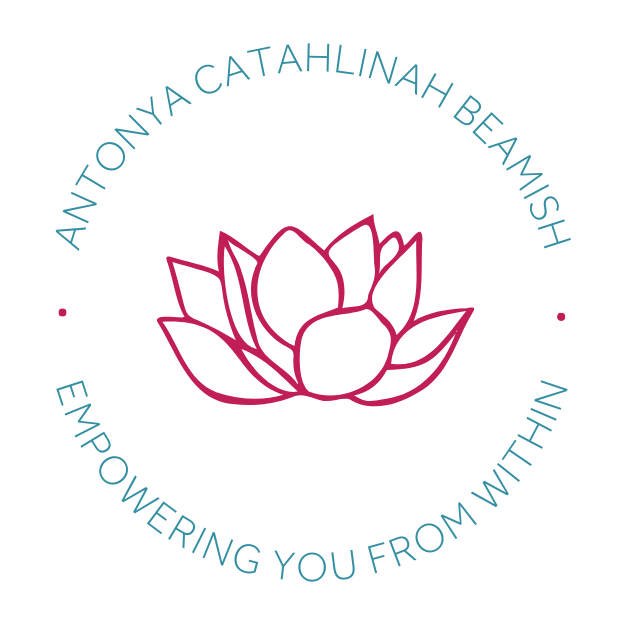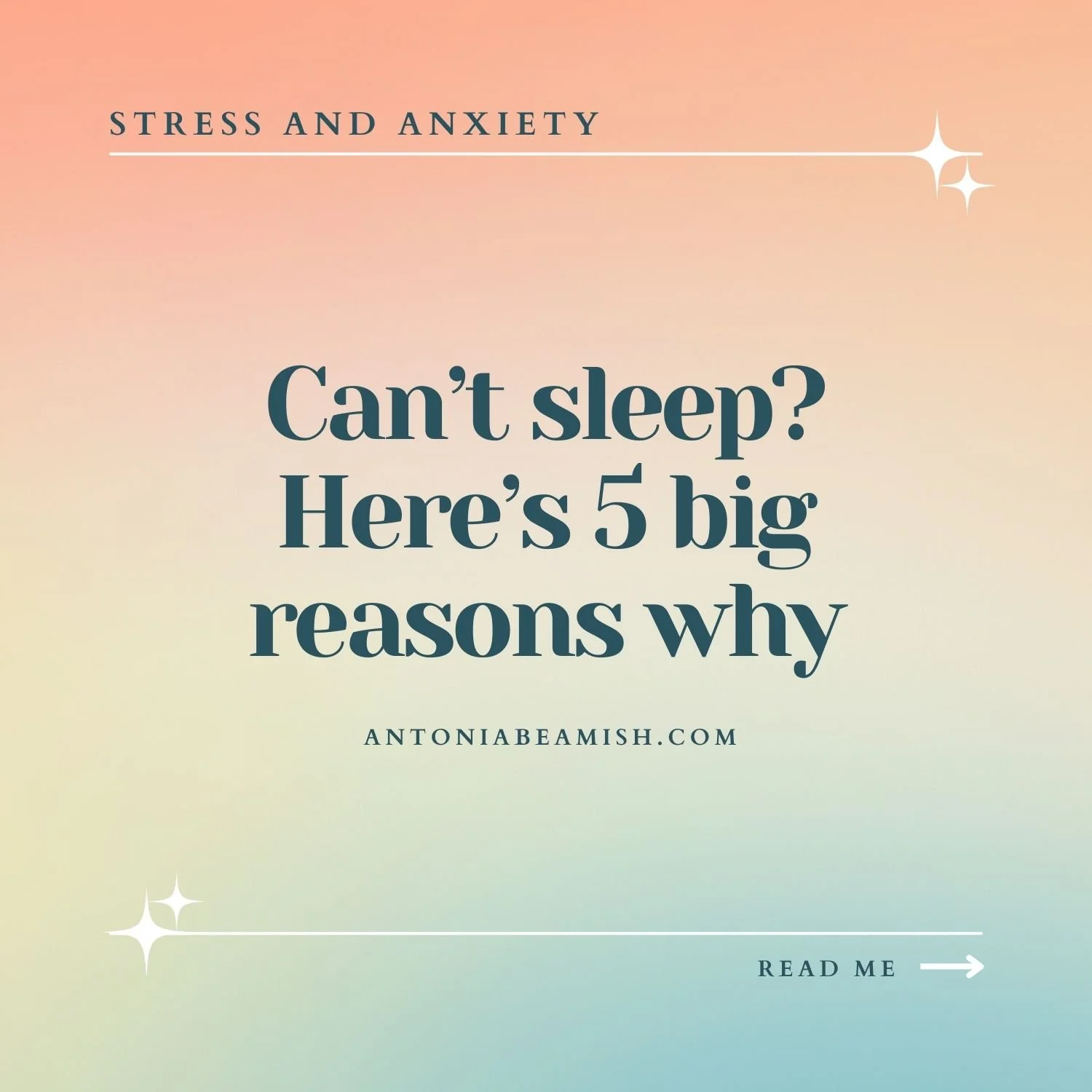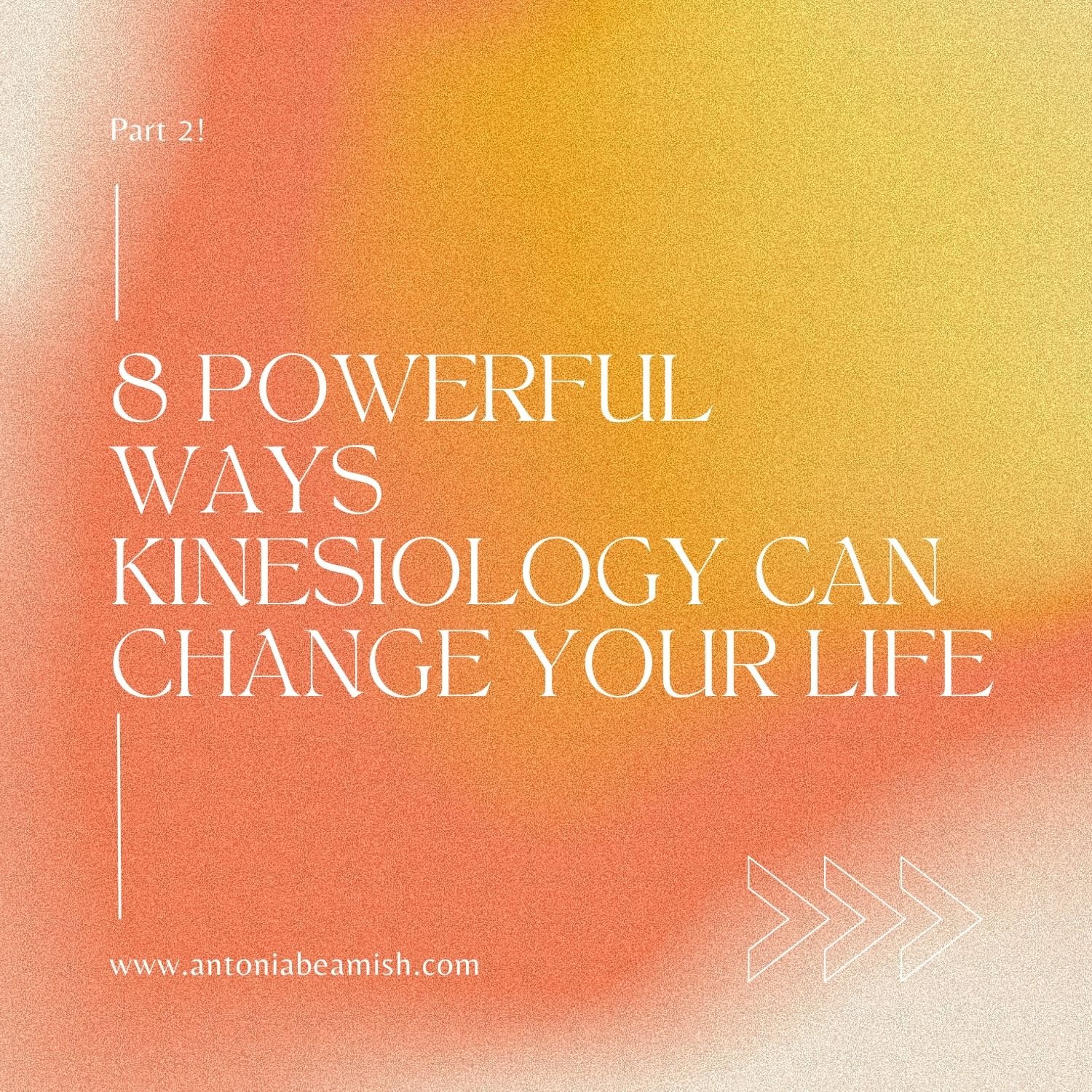Can’t sleep? Here’s 5 big reasons why
I recently wrote about 5 reasons why you’re waking up tired after 8 hours sleep, so I though I’d deep dive even further into why you might be having sleep issues.
1. Over energies
If you’re lying in bed, twitching, feeling restless, tossing and turning, chances are you have an over energy in your body. This is something not many people have come across but in Kinesiology over energies are a big contributor to lack of sleep.
If you break it down, it means there is an acupuncture meridian in your body which has excess energy and is blowing the circuit.
Each meridian is associated with a corresponding organ and in Traditional Chinese Medicine, we can tell, depending on what time you wake up in the night tossing and turning, which meridian is over energised.
A good example of this is waking up between 1am and 3am which is an overactive Liver meridian, something that can happen for anyone who drinks alcohol before bed or is holding onto anger or irritation. Another example is between 3am and 5am which is the Lung meridian, the seat of grief but also indicative of any respiratory imbalances in the body.
2. Chemical imbalances
For the body to remain in the parasympathetic nervous system, a state of calm and relaxation, we need to feed and nourish it. Like we would fuel ourselves for sports, we also need to properly fuel ourselves for sleep.
However, we don’t want to be eating too much, too late at night. This isn’t a myth, it’s logic. When we go to sleep, we want to have finished digestion so the body can focus on the job or repair and regrowth. If we eat food just before we go to bed, the energy is diverted away from repair and towards digestion, which is a process that can take several hours.
We also need to address any nutritional deficiencies. We often sleep poorly because we’re lacking the much-needed minerals and vitamins that are essential for sleep function. This is due to the poorer quality of our soil and diets lacking in an abundance of fresh food.
A good example is B6 which aids in the production melatonin. Another example is magnesium, not only wonderful for calming the body and regulating sleep but also calming down the mind because, let’s not forget, the mind and body are one unit.
Adrenal stress can be a huge contributor to waking up thoughout the night. Herbal formulas that gently support the adrenal function can be a wonderful aid for lack of sleep, such as a combination of Hops, Valarian and Passionflower, three synergistic herbs that work together.
Lastly, we need to be hydrated to sleep. The body just cannot do any of its jobs without adequate hydration.
3. Emotional trauma
This isn’t something that people immediately think of as being a reason behind poor sleep. However, when you begin to understand that imbalances can build and build in the body for years before finally coming out in severe symptoms or chronic illness, you can see why deep trauma can surface later in life.
To get to the root cause of any symptom, we often need to go back to when it first started. We can do this via muscle testing, opening up a communication with the body so we can piece the puzzle together.
One client who had trouble sleeping realised it started when she was scared to sleep. This was at a time in her life when she was being followed by an ex-boyfriend. Another client realised he hadn’t felt safe in his own bed since he was a child who had moved homes causing much distress and unhappiness.
In fact, most sleep issues are around not feeling safe.
It's a simple as releasing this trauma from the body, allowing it to surface and let go, that can bring sleep back into homeostasis. We are not changing the past, we are merely changing the emotional imprint surrounding that event in time, which in turn changes our emotive response in the present.
4. Stress
Another big reason for lack of sleep is stress. Most of us actively avoid worrying during the day because we can be busy and distract ourselves. However, when the lights go off there are no more distractions and we have to confront our fears.
Often, they circle round and round going nowhere at all. I find that if clients have sleep problems with no obvious emotional root cause, it tends to be a result of a build-up of low-level stress that becomes a deeply ingrained night time behaviour.
We always have a choice; we can accept a situation, change a situation or leave a situation. Yet when thoughts are circulating around and around in our heads, we feel powerless. I always suggest to keep a notepad by your bed so that if anything comes up you can write it down, either to address the next day or to bin it.
Anxiety can keep us awake at night, worrying about things we cannot change, especially fears around future events. The root cause of anxiety is stress, on an emotional, chemical, physical and energetic level, that disrupts the harmony and balance within us. When you begin to work on relieving stress on all those levels, those anxious thoughts can begin to melt away.
5. Overstimulation
This is a biggie. We are all so overstimulated in our current environments; bombarded with technology, noise, electromagnetic frequencies, television and social media, that switching off has not only become necessary for a good night’s sleep, but critical.
We need to unplug, like never before, from everything that stimulates our minds. We want to be at a point of drowsy calm and relaxation before we slip into bed. The worst culprit is television, especially shows with loud noises, flashing images, graphic or violent content. This is the antithesis of what we need before sleep.
Similarly, if we’re plugged into our phones; talking, messaging, communicating, we are not allowing space for the mind to quieten and switch off after the events of the day. Not only that, the light of our phones and TV screens affects our pineal gland which needs to regulate melatonin, a crucial hormone for our sleep.
I’d also add, physical under stimulation is also a big factor in lack of sleep. If we are not moving our bodies during the day, exercising, stretching and using them, we often get to bedtime and feel restless. We need to move, outside in the fresh air ideally, so we can switch off at night. Movement does so many wonderful things, it pumps lymph around the body, provides a huge amount of stress-relief, inspires our mind, connects us to ourselves and frees energy to move around the body.
How can Kinesiology help with a lack of sleep?
Sleep issues or insomnia, like any symptom, always have a root cause.
Our job as Kinesiologists is to use muscle testing to ask the body where the issue is coming from. We can check for any overenergies to find out whether an acupuncture meridian is blowing the circuit and disrupting sleep. We can then work on that meridian, and associated organ, and bring it back to balance.
We can test whether it’s an emotional root cause, find out where it’s coming from, and work on releasing the emotional stress that is locked in around the memory, providing support in the form of Bach Flowers which gently support surfacing emotions.
We can also test what the body is deficient in, whether it needs nutritional support and what, in particular, it’s asking for to help with a nutritional or chemical imbalance.
In Kinesiology we provide a safe place for you to offload any stresses, worries and burdens you’ve been carrying around with you. We use gentle emotional stress relief techniques to calm the mind which in turn allows the parasympathetic nervous system to kick in. Now we know that when the body is calm, it can sleep.
Lastly, we can support you, you are not on your own in this journey to wellbeing, suggesting ideas for you to bring into your daily routine, alongside the priority nutritional supplements and Bach Flowers that your body is telling is it needs at this time.
Want to receive the latest blog posts straight to your inbox? Sign up for my newsletter and you’ll also receive your FREE ‘Discover Your Fear Saboteur’ guide, the ultimate guide to identifying the fear sabotaging your potential!




















